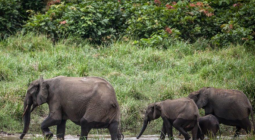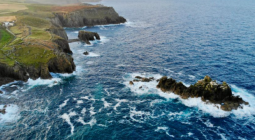Government ‘exploiting nature more than it is protecting it’, MPs warn in damning biodiversity report

‘Toothless’ policy and lack of expertise among long list of failures identified in existing efforts to reverse catastrophic impacts on natural world
A damning report by MPs has described government policy designed to tackle runaway biodiversity loss as “inadequate”, “not joined up” and “not on track to improve the environment within a generation”.
The Environmental Audit Committee (EAC) said it is urging the government to take biodiversity loss as seriously as the climate crisis, and said it had “grave” concerns about progress, with the UK having the lowest level of biodiversity remaining among any of the G7 countries.
In a statement, the EAC said “existing government policy and targets were inadequate to address plummeting biodiversity loss”, and accused the government of “spend[ing] more on practices that exploit the natural environment than conserving it”.
They said these problems were made “worse by nature policy not being joined up across government, nor is nature protection consistently factored into policy making”.
Environmental Audit Committee chairman, Philip Dunne, a Conservative MP for Ludlow, said: “The UK is home to many millions of species, but government inaction to protect habitats is leading to a significant decline in wildlife.
“Although there are countless government policies and targets to ‘leave the environment in a better state than we found it’, too often they are grandiose statements lacking teeth and devoid of effective delivery mechanisms.”
The committee added that due to a lack of clear targets, the existing 25 Year Environment Plan does not have sufficient scope to make the necessary legislative changes which could reverse the current fate of the natural world.
In the broad ranging assault on the current approach to the crisis, the committee criticised “inadequate monitoring” alongside a large number of different data systems in usage.
“Coupled with a lack of ecologist expertise in the heart of government and in local authorities [this] presents challenges to introduce effective mechanisms to halt biodiversity decline,” they said.
“Funding cuts to bodies exacerbate this, and the EAC urges the government to consider increasing Natural England’s multi-year funding to reflect the scale of their tasks to protect nature.”
The committee stated that current dependence on using gross domestic product (GDP) as the key measure of success as a nation, meant the natural world was directly suffering.
“All too often, governments spend more on practices that exploit the natural environment than conserving it,” the EAC said.
“The government must urgently establish a natural capital baseline to measure progress against environmental goals. It should also legislate for mandatory disclosure of nature-related financial risks. The government should explain how it intends to move beyond GDP as the primary measure of economic activity and towards an additional measure which includes consideration of the UK’s natural capital.”
Mr Dunne added: “We have no doubt that the ambition is there, but a poorly-mixed cocktail of ambitious targets, superficial strategies, funding cuts and lack of expertise is making any tangible progress incredibly challenging.
“All government departments must consistently factor nature into policy decisions, the Bank of England should develop a nature stress-test, and the 25-year Environment Plan must have interim statutory targets to assess progress.”
He also called for greater levels of education on the natural world to inspire learning and responsibility, but did not suggest the blame for current issues solely lie with the government.
He said: “Despite central government’s responsibility for policy decisions, the responsibility for nurturing natural habitats also rests with each and every citizen. Work to embed nature into the national curriculum, and to inspire the ecologists of the future, is absolutely crucial if we are to protect biodiversity effectively for generations to come.”
30 June 2021
INDEPENDENT





